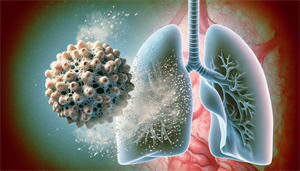If you’re wondering “why is my nose whistling?”, you’re dealing with a common yet often perplexing issue. The simple answer is this: a partial blockage in the nasal passage creates a narrow pathway for air to flow through, resulting in a whistling sound. This can be due to various causes such as allergies, sinus infections, or structural irregularities like a deviated septum.
In this article, we’ll dive into the common reasons behind a whistling nose and present actionable strategies to address it.
Key Takeaways
-
Nose whistling occurs when air squeezes through blockages in your nasal passages, caused by issues like sinusitis, allergies, a deviated septum, or nasal polyps.
-
To stop the whistling, you can maintain nasal hygiene with saline solutions and humidifiers, manage allergies with antihistamines, or consider surgical options for severe cases.
-
If nose whistling persists or is accompanied by other symptoms, it’s important to consult a healthcare professional to check for underlying conditions.
Nose Whistling Explained

Imagine your nose as a wind instrument. When you breathe, air passes through the tunnels of your nostrils. If these tunnels are clear, you inhale and exhale without any sound. However, if there’s a blockage, the air has to squeeze through the narrow spaces, causing vibrations. And there you have it! Your nose whistles, not dissimilar to a flute.
Now, you might wonder, what’s causing these blockages? Well, it’s not always a piece of tissue that you forgot to remove after a sneeze. Sometimes, it’s an indication of an underlying respiratory issue. Let’s examine the common causes that turn your nose into an unlikely musician:
-
Allergies
-
Sinusitis
-
Nasal polyps
-
Deviated septum
-
Common cold or flu
Common Causes of Nose Whistling

The most common band members of the nose orchestra are nasal congestion, a deviated septum, and nasal polyps. These conditions can obstruct or narrow your nasal passages, creating that infamous whistling sound.
Let’s understand these causes in detail.
Nasal Congestion
Consider your nose as a highway. Now visualize a traffic jam caused by inflammation and mucus buildup, similar to a cold or runny nose. This congestion makes it harder for air to pass through, causing your whistling nose to express its frustration when dealing with a runny nose.
Inflammation, the response of your body’s immune system to irritants, swells up the inside of your nose. Add to this, the excess mucus produced as a protective response, and you have the perfect conditions for a nasal concert and a potential sinus infection.
Deviated Septum
Your nasal septum, the wall dividing your nostrils, is like a line drawn with a shaky hand. It’s not always perfectly straight. Sometimes, it’s crooked from birth, or due to an injury. This deviation can create a narrow passage for the air, making your nose whistle while you breathe. In some cases, a perforated septum might also contribute to the nose whistle.
Constant whistling through your nose could indicate a hole in the septum, a condition known as septal perforation. This can make the air flow strangely between your nostrils, causing whistling sounds.
Nasal Polyps
Nasal polyps act like unwanted guests lingering at your nasal event. These non-cancerous growths, resembling teardrops or grape clusters, make themselves at home in your nasal passages and sinuses.
Unfortunately, these unwanted guests do more than overstay their welcome. They block the nasal passages, forcing air to escape through narrow openings, giving birth to that whistling sound.
How to Stop Nose Whistling: Effective Solutions

Now that we understand the causes, let’s discuss solutions. To silence the nasal orchestra, we have three effective strategies - maintaining nasal hygiene, managing allergies, and considering surgical interventions if necessary.
Let’s examine each strategy.
Nasal Hygiene Tips
Think of maintaining nasal hygiene as the road maintenance crew for your nasal airway. Keeping the roads clear and free from congestion ensures smooth traffic flow. Similarly, using saline solutions, ointments, humidifiers, and nasal strips can help improve airflow and reduce nasal whistling, a common issue related to nose whistling.
A saline solution works wonders for your nose. It helps clear the nasal passages and makes breathing easier. Similarly, humidifiers function like rain on a dusty road, adding moisture to the air to alleviate a stuffy nose and minimize whistling sounds.
Allergy Management
Allergies are akin to that friend who persistently brings unwanted guests to the party. They can cause inflammation in your nose and sinuses, inviting the unwanted guest - nose whistling. Managing your allergies can help calm down the inflammation and ease the whistling.
Steering clear of triggers and taking antihistamines can assist in managing allergies. Antihistamines act as gatekeepers at the nasal event, halting the body from producing histamine, easing nasal inflammation, and lessening bothersome allergy symptoms.
Surgical Interventions
If other methods prove ineffective, it might be time to consider surgical interventions. These are reserved for when your nose has formed a full-blown orchestra, and non-surgical fixes like nasal hygiene and allergy management aren’t silencing the concert.
From septoplasty to fix a deviated septum to balloon sinuplasty to unclog the sinuses, several surgical options can address the structural issues causing nose whistling. Discussing the pros and cons of each option with your healthcare professional before deciding is advisable.
When to Consult a Healthcare Professional

You don’t have to endure the symphony of your nose alone. If nose whistling is messing with your breathing, making you uncomfortable, or is accompanied by other worrying symptoms like nosebleeds or constant sinus infections, it’s time to bring in the experts.
Ignoring nose whistling might be akin to disregarding a ticking time bomb. It could be a sign of something more serious like a septal perforation or a deviated septum. So, do not hesitate to seek professional help when necessary.
Lifestyle Adjustments to Prevent Nose Whistling

While we’ve discussed the causes and solutions, let’s not forget prevention. A few lifestyle adjustments can help keep the nasal cavities’ orchestra at bay.
Staying hydrated, using a humidifier, and avoiding irritants are some of the key changes you can make. Implementing these changes can not only prevent nose whistling but also improve your overall respiratory health. Why not initiate these changes today?
Summary
In conclusion, nose whistling, while seemingly unassuming, can be a sign of underlying respiratory issues. From nasal congestion to deviated septum and nasal polyps, various conditions can lead to this phenomenon. Thankfully, with proper nasal hygiene, allergy management, and even surgical interventions when necessary, the nasal orchestra can be silenced. Remember, your nose is more than just a wind instrument. It’s a crucial part of your respiratory health, so take care of it.
Frequently Asked Questions
How do I stop my nose from whistling?
You can try using saline, ointments, and a humidifier to treat the whistling. If it persists, you may consider using a "septal button" to close off the perforation.
Why does it sound like there is a whistle when I breathe from my nose?
It might sound like a whistle when you breathe through your nose because of congestion from a cold or nasal allergies. Using nasal rinses with saline can help alleviate the sound.
What does it mean if you can whistle with your nose?
If you can whistle with your nose, it likely means you have sinus congestion, which can be caused by allergies, a cold, or a sinus infection. Anatomical issues like a deviated septum, perforated septum, or nasal polyps can also contribute to this.
Can allergies cause nose whistling?
Yes, allergies can cause nose whistling by leading to inflammation and mucus buildup in the nasal passages.
When should I consult a doctor for nose whistling?
You should consult a healthcare professional if nose whistling is affecting your breathing or if you have other symptoms like nosebleeds or persistent sinus infections. It's better to get it checked out to be safe.


